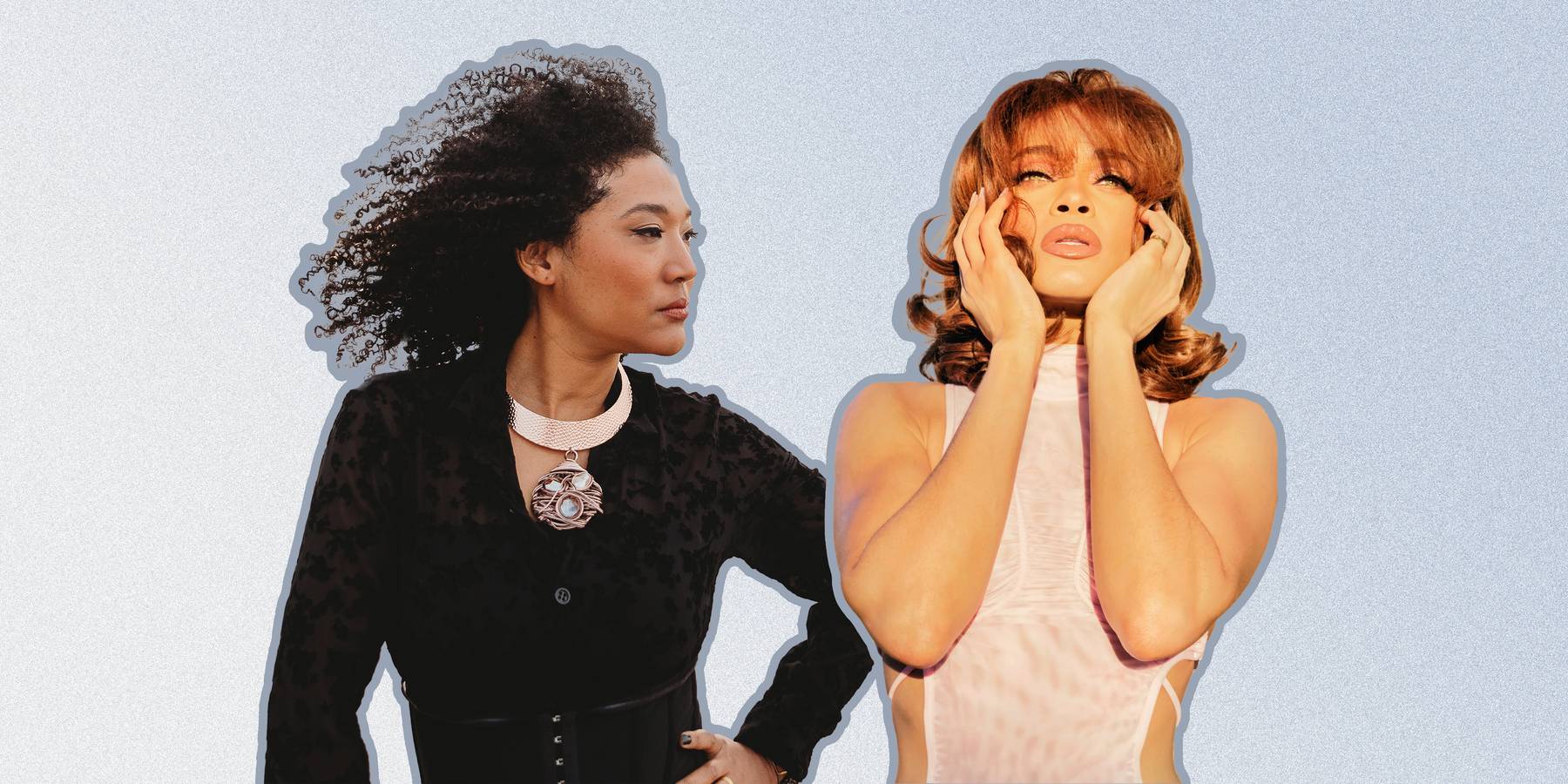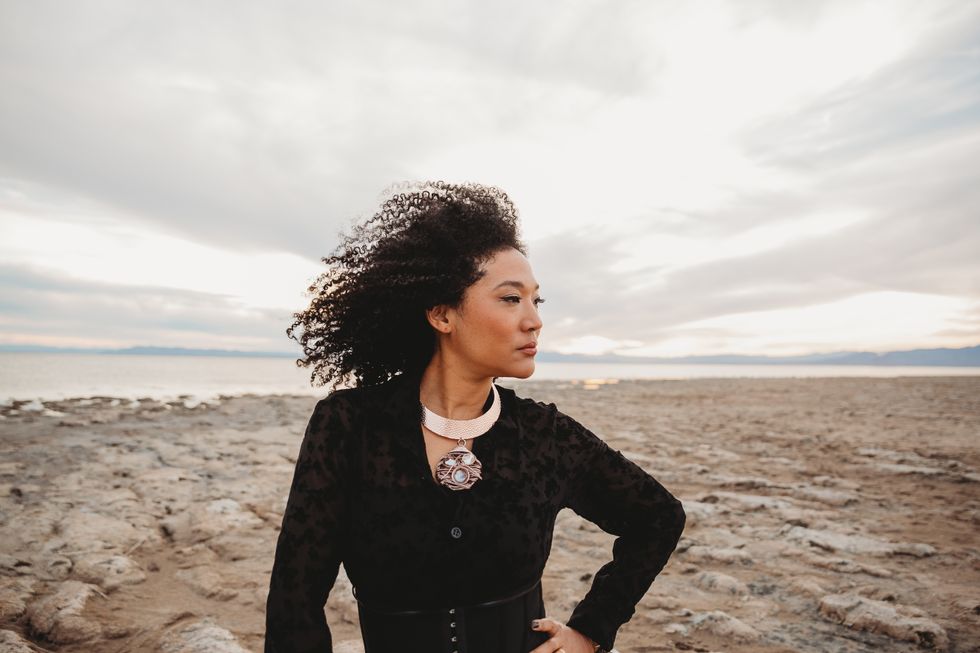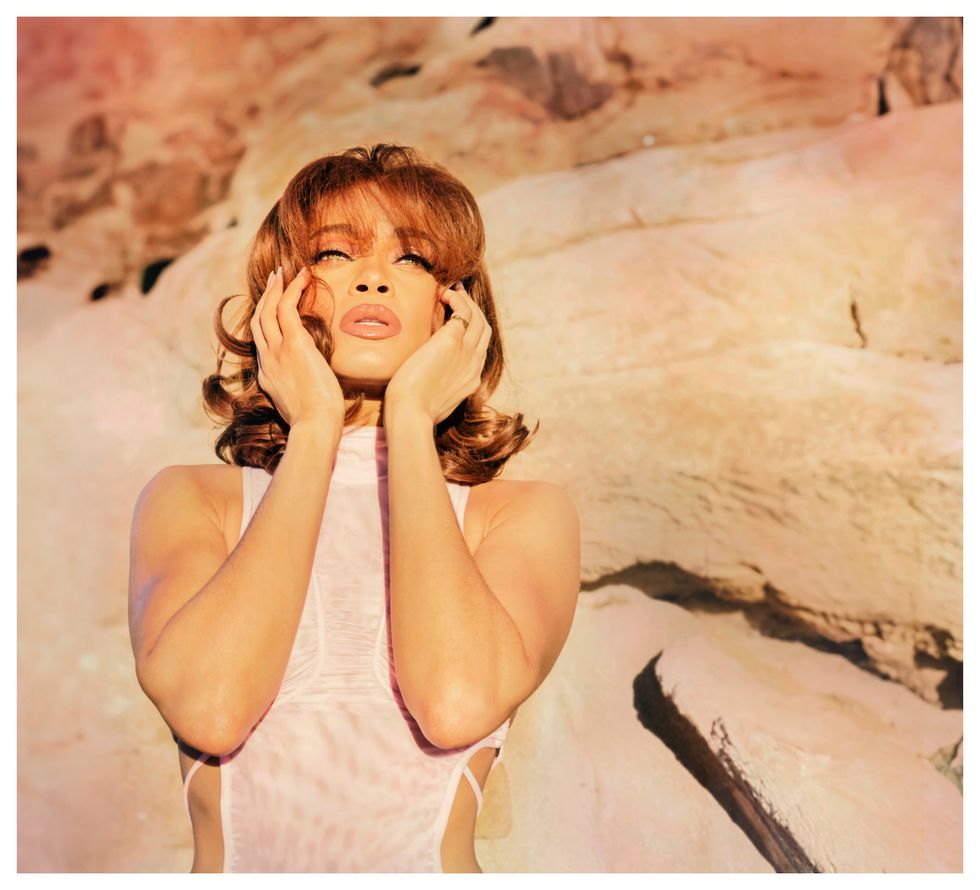
Andra Day and Judith Hill on Friendship, Movies and Music
BY
Erica Campbell | Aug 12, 2024

“You guys know that Judith [Hill] is my literal best friend, right?” Andra Day says as she joins us on a video call. The pair are giggling from their separate locations, both thrilled to be doubling their PAPER interview with much-needed time to catch up.
Earlier this year, Hill released Letters From a Black Widow, an album that touches on the myriad of experiences of the singer — who got her start touring with behemoths like Prince and Michael Jackson — has dealt with as she’s come into her own creativity. “This record came out of me going to therapy and talking about the darker things I was going through for years,” she tells PAPER. “[My therapist] told me I should express myself in those areas, just as an exercise for myself. I started writing the material and the minute I liberated myself and started writing more personal things it felt like something broke in me where I was able to find a path to healing and a path to unmuting myself. Letters From a Black Widow is about the journey I’ve taken through shame and through the shadows of my life... finding the drama and the theater in there and also finding a path to healing in the process of that.”
Day laughs, before responding in a similar tone. “I guess we’re in the same place Judy, 'cause there was a lot of guilt and shame in mine, too,” she says. Her album Cassandra, which she also released this year, focuses on loss, love and reclaiming her own power. “For me, the process of creating this album was living, praying and my life went to places I didn’t know I could go. There were decisions I made, I’d just been a lot more selfish in the last few years. I was dealing with love and loss. I was dealing with who I’ve always been. It was about being present moments and being present in the low moments and understanding, crystalizing the journey which is there are peaks and there are valleys. Sometimes you're the victim, sometimes you're the perpetrator."
Both artists are currently touring their albums (Hill kicked off her route last Wednesday in Indianapolis, while Day starts her dates today at the Richmond Jazz Festival). But for now, they’re enjoying time reminiscing on their friendship, getting candid about recent revelations and appreciating each other's creativity.

What are some of the challenges from the past decade that felt insurmountable but ended up making your album possible?
Judith Hill: A lot of the material on my album is about overcoming and reconciling my relationship with the public. I had a really difficult time after Prince's death. I was in the middle of a lot of chaos. There were a lot of accusations in the media, and I was called a "Black Widow," which was a derogatory name. That was something I couldn't get past, and I internalized it. So I wrote the song "Black Widow," and it was like I finally able to get a little distance from it and find artistic expression and paint a dramatic picture of what it was like being in that chaos. It took a lot of courage for me to do and doing so, it took away the hold it had in my life, of feeling held hostage by that narrative. It took a lot of growth to get there. It was definitely a terrifying thought anytime [before that].
I remember seeing you play "Black Widow" live at Mercury Live, and you seemed overwhelmed with emotion. What were you feeling?
Judith: The main emotion was the hurt of it. What was so real was doing it in front of people and finding a safe space in the public on stage. That was my internal song, so performing it externally was a very emotional thing.
Did you have a similar song or moment, Andra? Something that couldn't really be said until the album.
Andra Day: I'm actually just really focused on beating up on Judith's haters right now [laughs]. But like I've said, I've learned a lot about myself and relationships lately. I'm not good at them. I make selfish, not-great decisions, I allow a lot. Especially times when I'm in love, being in love and knowing something is not for you. I have this fear, this imposter syndrome, that when people get to know me, they aren't going to want to stick around. Because I'm not good or not enough interesting ... all the things. So, letting go of love for me was terrifying. There was always this idea that nobody would love me again. That led to my song "Chasing" on the record. Also, figuring out who I was after doing Billie Holiday. I'd lost a relationship because I was really selfish, then I felt like, Will I ever be loved again, can I love myself again? It seemed insurmountable at the time. It felt like I was going to in that space forever. That's what the song "Still" in the album came from. I was reminded that my foundation is in prayer, in God. It feels futile sometimes to be doing those things, praying, meditating. It feels futile. I got to the point where I realized all that investment and all that time was leading to something. the song goes from being stuck still, then it goes into just being still.

Turning that on its head, what are some of the songs you relate to high moments?
Andra: Hearing people from different groups, and how they felt about it. I remember playing in the studio and they had an incredible action. It was really positive and really encouraging. Then you have really personal moments when you finish it and you love it. You have those moments where you realize: This is what was meant to be, where you're like, I love this; I don't care what anybody else thinks of it. I really love this song.
Judith: I agree. Just making the album and finishing it was the big moment top experience. It was like, This is exactly what I wanted. Allowing it to come to shape and creation finally was a healing process. There have been people who've reached out to say, "This song really speaks to me during this hard time." People want to tell their story about how the song is connected. My work isn't for everybody, it's darker material. But there are a group of people who really feel heard. Hearing them talk about how the music is impacting them has been really rewarding.
Do you have questions for each other about your separate creative processes — any questions you have about the others album?
Judith: We hang out and we'll be working on these projects and we'll be like, "Let's go to the movies and watch an ignorant film." Then go eat something. It's so funny...
Andra: What was the time when we came to my house and had a movie night? And we decided that Netflix needed a "Fine Niggas" category. We were like, "I just want to watch someone pretty right now, I don't understand why we have to sift through these options!" We really are like sisters, because we've been working on these projects for so long. She's been touring and killing it always, I've seen her live, and I know how she gets down. We laugh about this, because I think people think we get together and talk about... well, we do talk about deep things, spiritual things, our faith. And sometimes we talk about the state of the music industry. She can vouch for this; we get together, and we just talk about an ignorant inner mess.
I get that. I bet it's nice to be around someone who knows how you're feeling and what you're going through without having to talk about it.
Judith: That's it. With Andra, she's my spirit sister. I don't have to say much, and she doesn't have to say much, but we feel each other. I feel like when I'm with her I get a break from everything. We're always having to do all these things, answer all these questions and when we get together.
Andra: That's literally how I feel. We're spirit sisters. It fits for both of us because I always say the best company feels like good company and alone time at the same time.
Photography: Myriam Santos, Ginger Sole